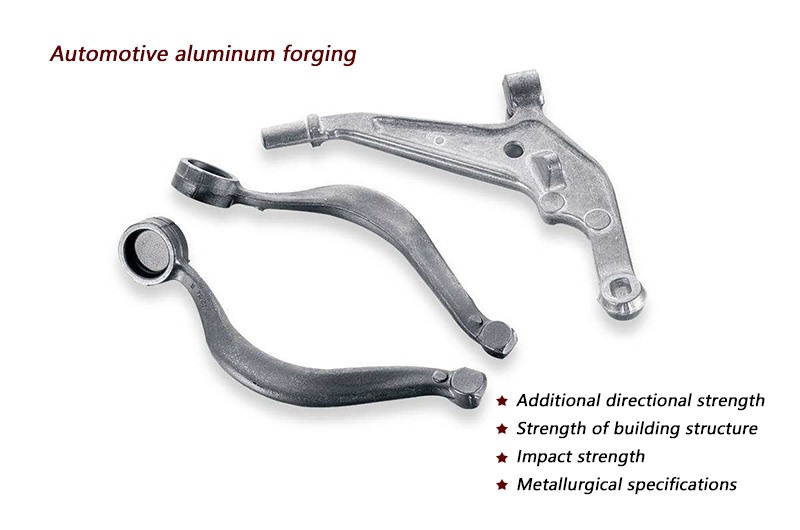As an important part of the automobile, auto parts are the units that constitute the overall processing of auto parts and the products that serve the processing of auto parts, which have an important impact on the service life and driving comfort of the car. On the whole, traditional auto parts can be roughly divided into seven categories: engine, transmission system, steering system, braking system, driving system, body accessories, and electronic appliances. The metal structural parts produced by Chalco are precision
automotive aluminum forging, precision machined parts, body structure, chassis parts, automotive electronics, and engine metal parts products.
In automotive metal parts, precision structural parts are a very important subdivision field. Precision structural parts refer to plastic or hardware parts that have the characteristics of high dimensional accuracy, high surface quality, and high performance requirements. They are usually obtained by forging and play the role of fixing, protecting, supporting, and decorating in industrial products.

Aluminum forging is not only used on cars, but also on motorcycles and bicycles, such as Harley motorcycles and sports bicycles.
The main production processes of
automotive aluminum forging include: blanking → hot forging → T2 → film → rough forging (cold) → T2 → film → fine forging (cold) → T2 → water swelling → spinning → T4/T6 → washing white → CNC1 →CNC2→CMC→laser marking→cleaning→full inspection→packaging (water swelling and spinning are subcontracted processes). The core technology of production is to master the entire process from hot forging to full inspection, and to continuously improve the process and processing complexity according to customer requirements. The mold manufacturing process is also difficult, requiring long-term experience accumulation and experimentation.
Features of
automotive aluminum forging
1. Additional directional strength
aluminum forging for automotive can obtain the expected and uniform grain size and flow characteristics by strictly controlling the mechanical deformation of the heated metal.
Automotive aluminum forging is usually also pre-processed to improve the dendritic structure and eliminate voids. This becomes excellent metallurgical and mechanical quality and provides higher directional toughness in the final product.
2. Strength of building structure
Free forging provides structural integrity unmatched by other metal processing methods. Forging eliminates internal voids and air pockets that can weaken metal parts. Disperse alloys or non-metals during the forging process to make it have good chemical uniformity. The predicted structural integrity reduces the requirements for workpiece inspection, simplifies heat treatment and machining, and ensures the best performance of the workpiece under on-site load conditions.
3. Impact strength
Parts can also be forged to meet almost all stress, load and impact requirements. The correct valley flow direction can ensure the maximum impact strength and fatigue resistance. The use of
automotive aluminum forging technology can reduce the section thickness and total weight without affecting the quality of the entire part.
4. Metallurgical specifications
Alloy selection, part configuration, thermal machining and post-forming processes will all affect metallurgical properties.





